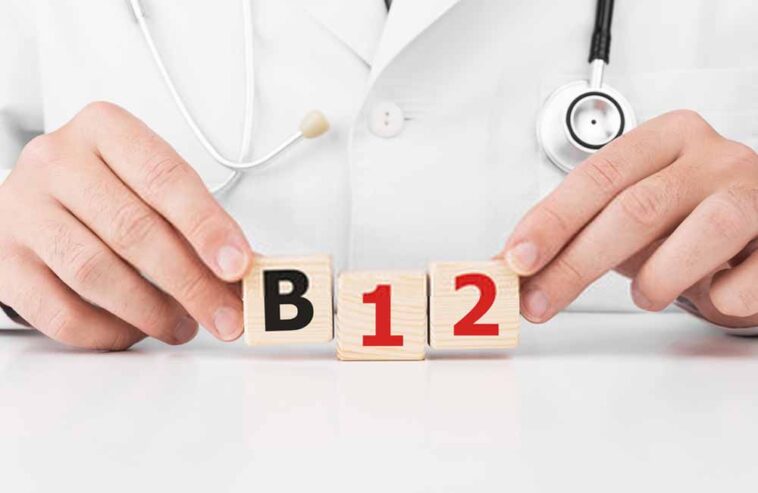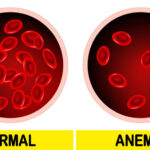Vitamin B12 deficiency is one of the most common nutritional deficiencies and you should never ignore these signs of vitamin B12 deficiency. As we age, our body’s ability to absorb vitamin B12 slows down.
The main reasons for this condition are a strict vegetarian diet and weight-loss surgery.
Vitamin B12 helps in the formation of red blood cells and DNA. Since the human body is unable to make vitamin B12, it is essential to get it from supplements or animal foods. But some people do not take this vitamin seriously. Because of this, they suffer from vitamin B12 deficiency.
About 40% of North Americans suffer from vitamin B12 deficiency. Also, people with chronic fatigue syndrome or fibromyalgia suffer from vitamin B12 deficiency, according to statistics.
Here are some signs of vitamin B12 deficiency that you may experience, if you suffer from Vitamin B12 Deficiency, and we will give you some helpful steps as a bonus to get rid of them.
1. Weakness, fatigue, tiredness

According to the Cleveland Clinic Wellness Institute, weakness and fatigue are the most common symptoms of B12 levels lagging. When the vitamin supply is low, your body produces fewer red blood cells than it needs to circulate oxygen. As a result, you feel sleepy, tired, exhausted, and even lightheaded. This is not normal fatigue though. If you regularly get at least eight hours of sleep and are still tired, you may be suffering from vitamin B12 deficiency.
The human body relies on these vitamins to produce red blood cells. The more red blood cells there are, the more oxygen is carried through the body. One thing to keep in mind is that you should not suffer from vitamin B12 deficiency as fatigue is just one symptom.
2. Your muscles are weak
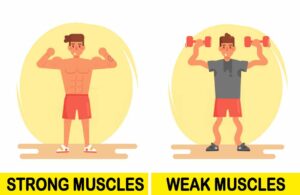
They need oxygen to keep their muscles strong. Red blood cells that supply oxygen to muscles depend on vitamin B12. So if you are suffering from vitamin B12 deficiency, your muscles will feel weak.
3. Shortness of breath

One of the physical signs of vitamin B12 deficiency is fatigue and shortness of breath. Vitamin B12 contributes to the production of hemoglobin, a protein that carries oxygen in your bloodstream. Vitamin deficiencies can reduce the flow of oxygen to your tissues, leading to anemia and shortness of breath. If you experience unexplained fatigue, palpitations, shortness of breath, sore tongue, or other symptoms and signs of vitamin B12 deficiency, see your doctor for a physical examination.
4. Nerve damage
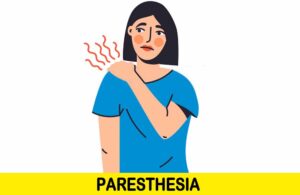
Lack of B12 can cause nerve cells to degenerate, causing pin-and-needle sensitivity in your hands and feet. If you ignore it, the symptom becomes permanent and becomes paresthesia. The nervous system needs vitamin B12 to make myelin, a white sheath around nerve fibers, which speeds up impulses. Vitamin B12 deficiency can lead to degeneration of the spinal cord, optic nerve, cerebral tissue, and peripheral nerves.
Without B12 protection, spinal cord nerves can degenerate and you will feel wobbly. Like its counterpart, you will stumble and lose balance even when walking on a flat surface.
5. Loss of appetite, constipation, bloating
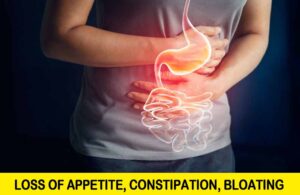
Vitamin B12 deficiency is one of the various causes of digestive problems such as constipation or gas. If left untreated, B12 deficiency can lead to chronic constipation, indigestion, flatulence, diarrhea, and loss of appetite. Low levels of vitamins affect the normal functioning of the gastrointestinal tract. You can take a vitamin B12 supplement to restore normal vitamin B12 levels and get relief from constipation.
Most people with vitamin B12 deficiency do not have an intrinsic factor – a protein secreted by the stomach that is needed to absorb vitamin B12. It binds with vitamin B12 and carries it to the intestines for absorption. Due to its deficiency, your digestive system cannot absorb B12. In this case, the only thing you can do is inject vitamin B12.
6. Depression
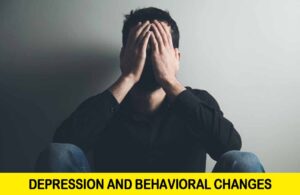
Naturally, as the deficiency of some vitamins can lead to depression and behavioral changes, B12 is no exception. Vitamin deficiency has a profound effect on the production of serotonin in your brain. Serotonin helps regulate your mood. In many cases, taking B12 supplements can significantly improve your mood. Talk to your doctor and try to find the best treatment plan for you.
7. Eye problems
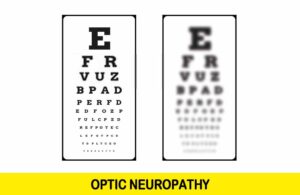
Vitamin deficiency causes optic neuropathy and vitamin B-12 plays an important role in the activation of the nervous and nervous system due to vision loss. This can lead to double vision, blurred vision, and even vision loss.
Vision loss can be identified in people who are malnourished or do not consume animal products. Recent research has shown that a combination of vitamin E, DHA, and vitamin B12 improves the sensitivity of the visual field and retinal in glaucoma patients. In general, long-term intake of B12 supplements reduces the risk of cloudiness and decreases visual acuity.
8. Pale skin

If you notice that your skin looks yellowish, you may have a vitamin B12 deficiency. When red blood cells break down, it causes the release of bilirubin. This gives the skin a yellowish color.
Another physical indication of low levels of vitamin B12 is jaundice on your skin or whiteness in your eyes. Red blood cell production depends on vitamin B12. Improper production of red blood cells leads to anemia known as megaloblastic anemia. If you notice that your skin turns yellowish, you may be suffering from vitamin B12 deficiency.
When red blood cells break down, it causes the release of bilirubin. Bilirubin is a slightly red or brown substance that is produced by the liver when old blood cells are broken down. Large amounts of bilirubin, which try to break down large red blood cells, turn your skin and eyes yellow.
With this condition, the red blood cells become large, fragile, and unable to divide. They go out of your bone marrow and are big enough for your blood circulation. Therefore, you do not have as many red blood cells circulating throughout your body and your skin looks pale.
9. Red, Smooth Tongue
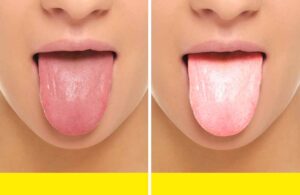
If you are deprived of animal foods, you are at risk of developing certain diseases of the digestive system, or such as excessive alcohol consumption, you risk a vitamin B12 deficiency. Lack of B12 in your blood is glossitis characterized by a red, beefy, smooth tongue. The small bumps on your tongue are called papillae. People with B12 deficiency lose their tongue papillae. Research has shown that people complain of the back of the tongue pain.
The papilla on the tongue contains most of the flavor buds. If you lose too much of it, your food will not taste good.
DNA synthesis is impaired because your body does not have enough vitamin B12. As a result, oral epithelial cells divide rapidly, causing glossitis, angular cheilitis, recurrent oral ulcers, and oral candidiasis.
Symptoms of glossitis can come and go from time to time and get worse as the day goes on. If you notice any of these symptoms, try changing your eating habits – include cereal fortified with B12, if you not consume animal products like meat, poultry, fish, clams, oysters, eggs
10. Weak bones
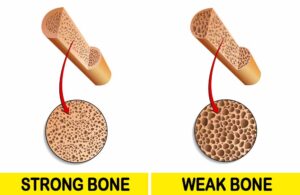
Calcium and Vitamin D, as well as Vitamin B12, play an important role in the formation of osteoblasts, the body’s bone-building cells. Vitamin B12 deficiency impairs the proper functioning of their immune system and can lead to osteoporosis. The disease is characterized by fragile, weak, or brittle bones due to tissue loss due to malnutrition. Rapid bone loss can lead to falls, bone fractures, and breaks. Adults are at greater risk than anyone else, so regular blood tests are essential for them.
11. Subtle symptoms among adults
Vitamin B12 deficiency is estimated to affect 10-15% of people over the age of 60. People may have a severe deficiency or an underlying health condition that causes their B12 to drop. Surprisingly, many older people usually do not have the main symptoms of B12 deficiency or they are subtly revealed. However, the absorption of protein-binding vitamin B12 may indeed decrease with age.
Treat and reverse the damage before it becomes irreversible. At worst, it can lead to mental confusion, dementia, and a decline in mental abilities (memory, judgment). You will need a simple test and a blood test to find out if you have this disorder. It is recommended to take the right amount of vitamin B12 with supplements or fortified foods to help the digestive system absorb nutrients.
What causes vitamin B12 deficiency?
Our body contains good bacteria that cause food to break down and absorb nutrients. But when there is an imbalance of intestinal bacteria, it can absorb essential nutrients improperly. This may include vitamin B12. Another reason is chemotherapy. The medication that is given during chemotherapy can cause inflammation and irritation of the gut.
How can I raise my B12 levels fast?
Vitamin B The first step to getting rid of deficiency is to change your diet. Add vitamin B12 sources such as cereal fortified with B12, or animal products like meat, poultry, lamb, fish, clams, oysters, eggs, and also add beef liver and chicken liver.
- What is the best B12 supplement?
If adding food sources is not an option, taking vitamin B12 supplements is another option. Two good supplement options are methylcobalamin and cyanocobalamin. Do not start taking this supplement until you have talked to your doctor first. For those who do not eat meat, these supplements are a good option.
- Quality Probiotics
Another good step to take is to take quality probiotics. These help in better absorption of vitamin B12. Quality probiotic sources include kefir, dark chocolate, and kombucha.
- Stop eating inflammatory foods
To keep your intestines healthy, you need to reduce the number of inflammatory foods you consume. These include packaged foods, fast foods, fried foods, and low-quality meat and food additives. If you follow a strict diet and get the necessary B12 supplements, you will not suffer from vitamin B12 deficiency.
Now, you also know the high signs of vitamin B12 deficiency and make it easy to see your doctor if you are concerned.
Enjoyed our list of signs of B12 deficiency? For more articles like this, click the similar button below!
Have you felt any of the above symptoms?
Tell us about your experience in the comments section below.
Do you know of anyone who is vitamin B12 deficient?
Don’t forget to like and share this article with your friends to stay healthy, click subscribe to join us for a healthier lifestyle.
Thanks for reading!
Preview photo credit Adobe Stock



